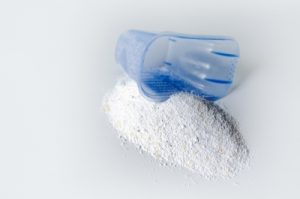PICA: The Eating Disorder No One Is Talking About
 The conversation of eating disorders rarely includes talk of consuming non-edible things like bark, clay, dirt, soap, or even feces.
The conversation of eating disorders rarely includes talk of consuming non-edible things like bark, clay, dirt, soap, or even feces.
But that’s exactly what characterizes pica – an eating disorder that may stem from nutritional deficiencies or mental health conditions like autism or obsessive compulsive disorder.
Who gets pica?
Pica is generally associated with pregnant women, explains Bonnie Taub-Dix, MA, RD, CDN, and owner of BTD Nutrition Consultants, LLC. The first trimester can spontaneously trigger cravings for unusual things, like coffee grounds or laundry detergent, she reports in an article on U.S News & World Report.
But pregnant women aren’t the only ones at risk for pica: about 32 percent of children between the ages of 1 and 6 have the disorder, and those with mental or developmental delays are even more at risk, Taub-Dix says.
Complications
Besides the risk of eating something poisonous, pica can pose other problems: gastrointestinal issues, obstruction, or even organ damage. Pica might also ruin teeth and gums or cause mental agitation.
Another complication of pica is that it’s likely to go unreported, Taub-Dix said. Yet one 2011 study showed that hospitalizations for pica have risen by 93 percent between 1999 and 2009, suggesting the disorder is becoming more common.
Stories of celebrities who endorse eating “cleansing clay” or models that eat tissues might also contribute to more widepspread awareness about pica-like behaviors.
Treatment
Since pica could be related to mineral or nutritional deficiencies, treatment may involve addressing both the physical and psychological reasons for pica behaviors.
“This silent eating disorder is serious and can lead to severe complications,” Taub-Dix said. “If you, or someone you know, suffers from the symptoms mentioned above, please seek the help of a health care provider.”
Source: US News & World Report
Image via graur razvan ionut /FreeDigitalPhotos.net
 Eating Disorder Self Test. Take the EAT-26 self test to see if you might have eating disorder symptoms that might require professional evaluation. All answers are confidential.
Eating Disorder Self Test. Take the EAT-26 self test to see if you might have eating disorder symptoms that might require professional evaluation. All answers are confidential.